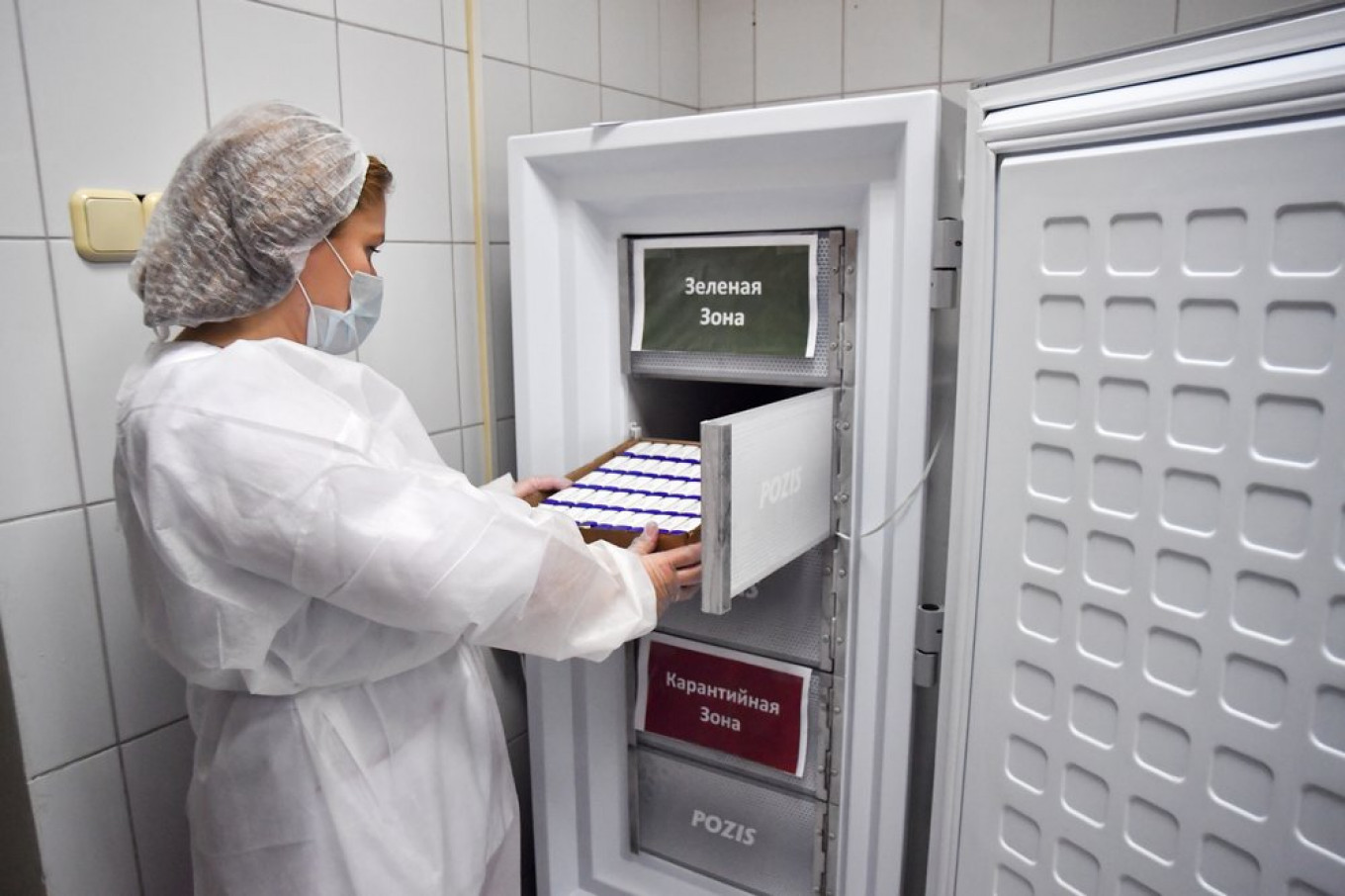
More Russians distrust their homegrown coronavirus vaccine now than they did in the summer, a new independent poll cited by Russia’s Open Media news website said Monday as authorities raise hopes of mass vaccination in the coming months.
The share of Russians unwilling to vaccinate against Covid-19 has risen to 59% in October from nearly 54% in August, according to the Levada Center pollster.
Mistrust for Russia’s Covid-19 vaccine grew most among residents of Moscow. Just 31% of respondents in the capital answered yes in October when asked if they would be willing to vaccinate, down from nearly 40% in August. Only 29% of college-educated respondents said they would vaccinate, down from 36% in August.
Levada sociologist Denis Volkov said the results showed the Russian authorities’ failure to overcome their citizens’ skepticism over the hastily developed vaccines without large-scale clinical trials for safety and effectiveness. At least two Russian developers have begun testing their Covid-19 vaccines on thousands of volunteers in recent weeks.
“People would like Russia to [lead] other countries, but we can’t be that far ahead of everyone else,” Volkov told Open Media.
“There need to be significant changes to change people’s attitude [toward the vaccine], but that hasn’t happened yet,” he added.
The share of respondents who say they are willing to receive the free and non-mandatory vaccine has fallen to 36% in October from over 38% in August, according to Levada’s survey cited by Open Media. Previous polling has suggested that almost half of Russians would never vaccinate against the coronavirus regardless of whether it’s produced in Russia or another country.
The increasing skepticism toward domestic coronavirus vaccines comes despite record numbers of Russians becoming infected and dying of Covid-19 over the past month as authorities continue to rule out a nationwide lockdown.
Cases nearly quadrupled from around 5,000 per day in early September to more than 18,000 per day in the past three days. Deaths over the same period rose from an average of around 100 per day to more than 300 last week.
Levada conducted the survey among 1,601 Russians between Oct. 22-28, according to Open Media.
